President's Secretariat
PRESIDENT OF INDIA PRESENTS SWACHH SURVEKSHAN AWARDS
MODERN SYSTEMS OF CIRCULARITY COULD BE STRENGTHENED BY LEARNING FROM TRADITIONAL LIFESTYLE: PRESIDENT MURMU
प्रविष्टि तिथि:
17 JUL 2025 1:58PM by PIB Delhi
The President of India, Smt Droupadi Murmu, presented Swachh Survekshan awards at a function organized by the Ministry of Housing and Urban Affairs in New Delhi today (July 17, 2025).
Speaking on the occasion, the President said that Swachh Survekshan has proven to be a successful experiment in assessing and encouraging the efforts made by our cities towards cleanliness. She was pleased to note that the world's largest cleanliness survey was conducted by the Ministry of Housing and Urban Affairs for the year 2024, with participation from various stakeholders, state governments, urban bodies, and approximately 14 crore citizens.
The President said that our cultural and spiritual consciousness has emphasized cleanliness since ancient times. The tradition of keeping our homes, places of worship, and the surroundings clean was an integral part of our lifestyle. Father of the Nation Mahatma Gandhi used to say, "Cleanliness is next to godliness”. He considered cleanliness as the cornerstone of religion, spirituality, and civic life. She said that she had started her journey of public service with work related to cleanliness. As the Vice President of the Notified Area Council, she used to visit wards every day and supervise the cleanliness work.
The President said that minimizing wastage by using minimum resources and re-using them for same purpose or other purpose, has always been the part of our lifestyle. The basic principles of circular economy and systems of reduce-reuse-recycle are modern and widespread forms of our ancient lifestyle. For example, the traditional lifestyle of tribal communities is simple. They use less resources and stay in harmony with the weather and environment, and in partnership with other community members. They do not waste natural resources. The modern systems of circularity could be strengthened by adopting such behaviour and traditions.
The President said that the first and most important step in the waste management value chain is source segregation. All stakeholders and every household need to pay utmost attention to this step. Zero-waste colonies are setting good examples.
The President appreciated the School Level Assessment initiative, started with the objective that students adopt cleanliness as a life value. She said that it would have very beneficial and far-reaching results.
The President said that controlling plastic and electronic waste and preventing pollution caused by them is a big challenge. With proper efforts, we can reduce the country's plastic emissions significantly. The central government banned some items containing single-use plastic in the year 2022. In the same year, the government issued guidelines for Extended Producer Responsibility for plastic packaging. It is the responsibility of all stakeholders, including producers, brand owners, and importers, to ensure that these guidelines are fully followed.
The President said that efforts related to cleanliness have economic aspects, cultural dimensions, and geographical aspects. She expressed confidence that all citizens would participate in the Swachh Bharat Mission with full dedication. She said that with well-thought-out and strong resolutions, the developed India by the year 2047 will be one of the cleanest countries in the world.
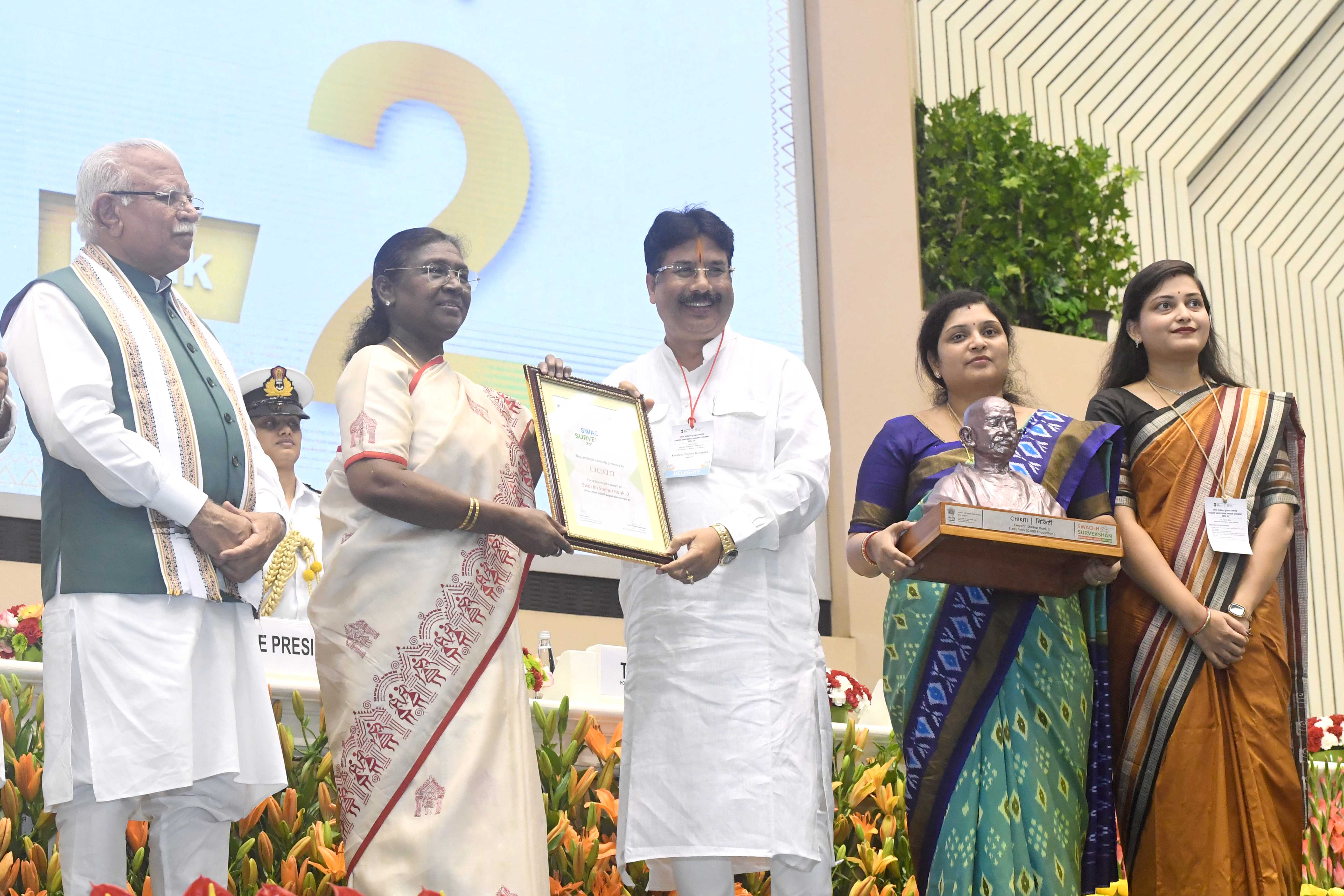
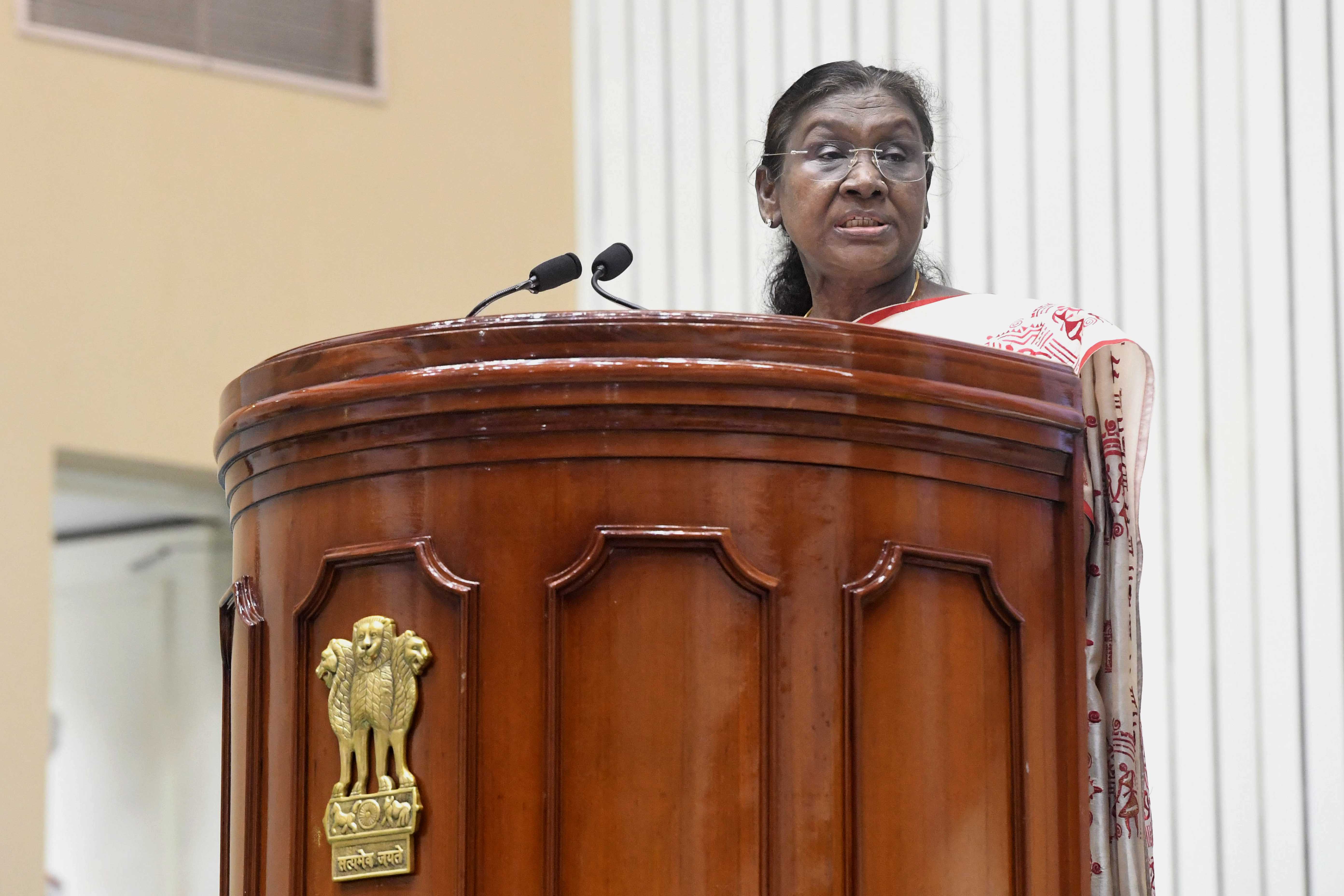
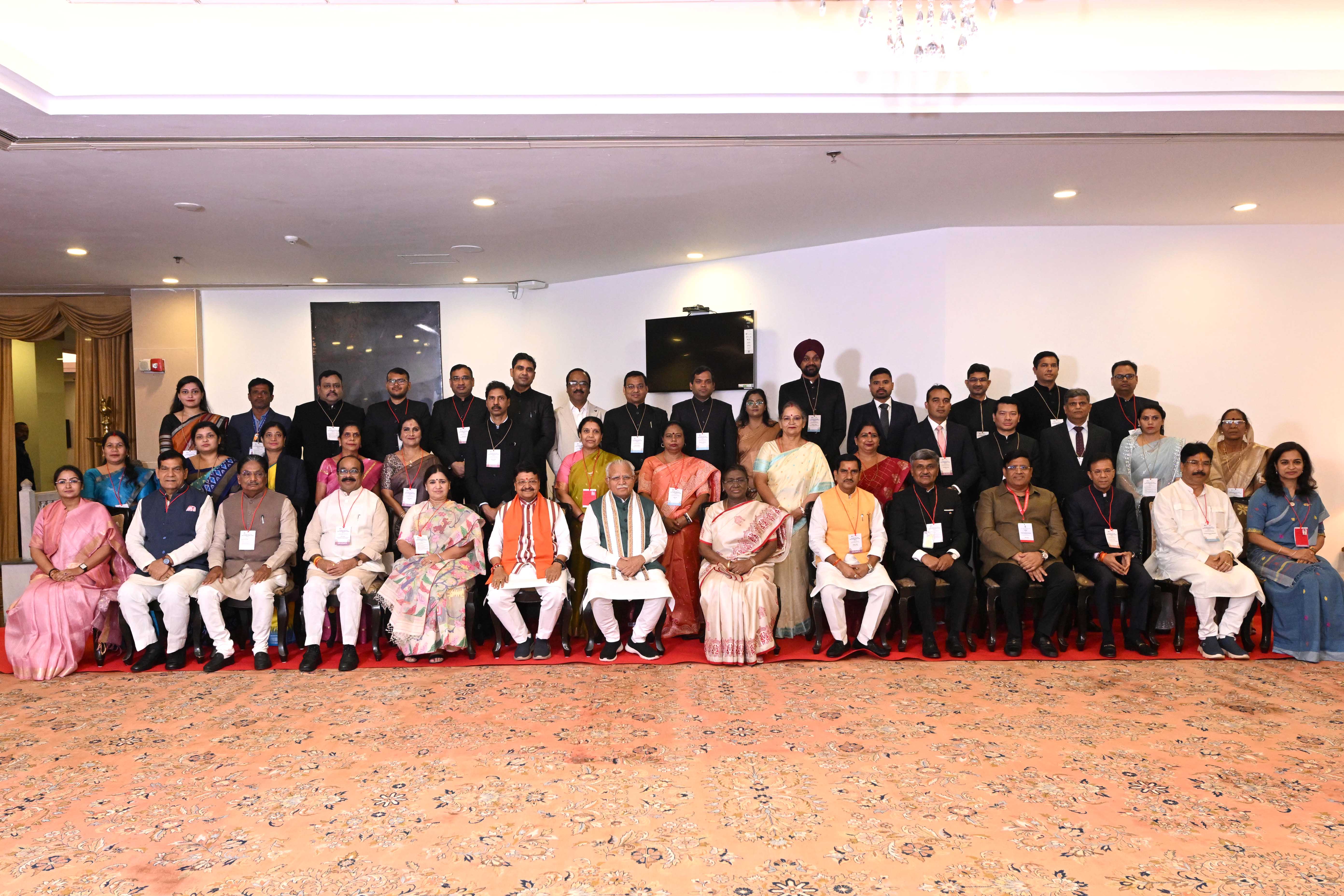
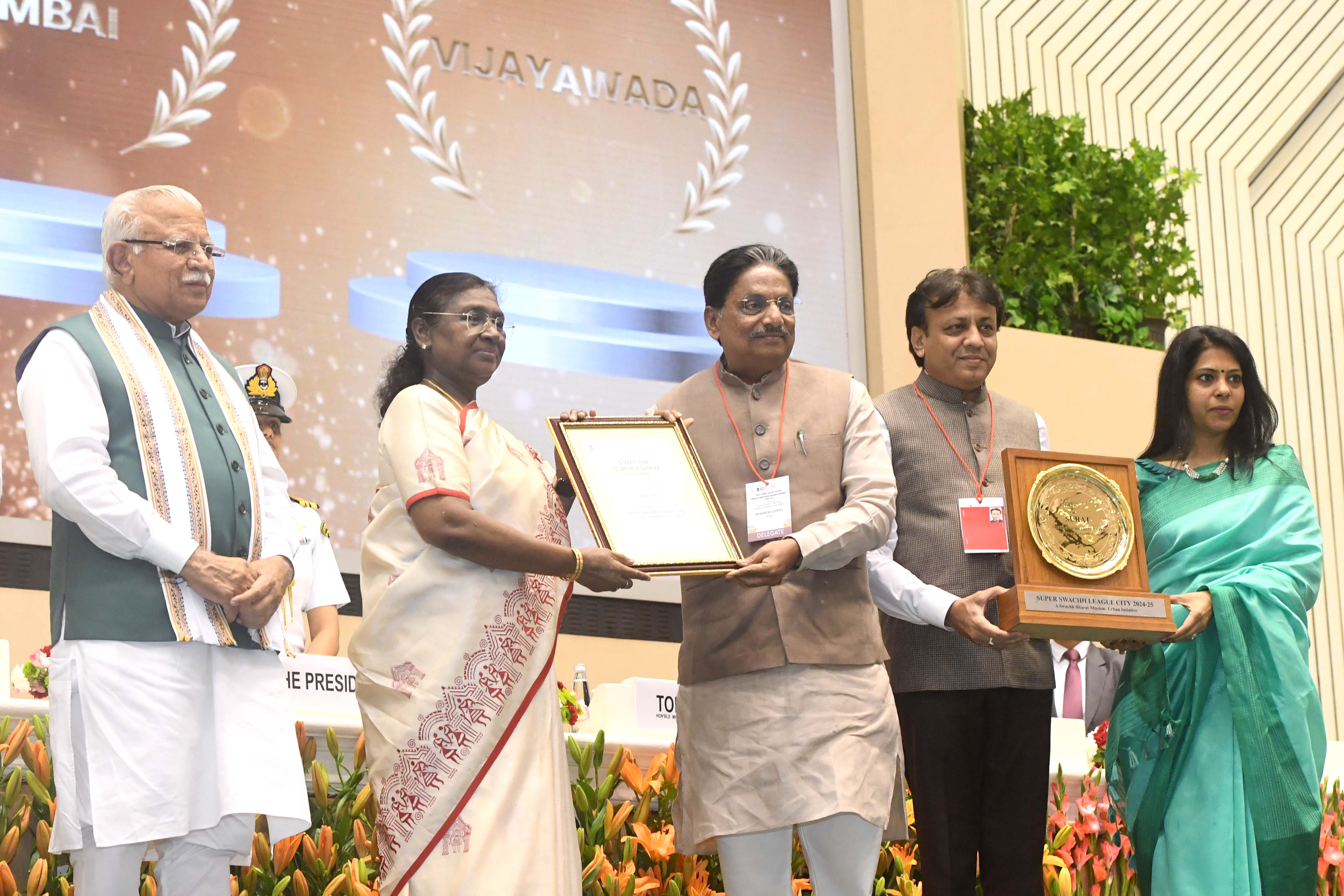
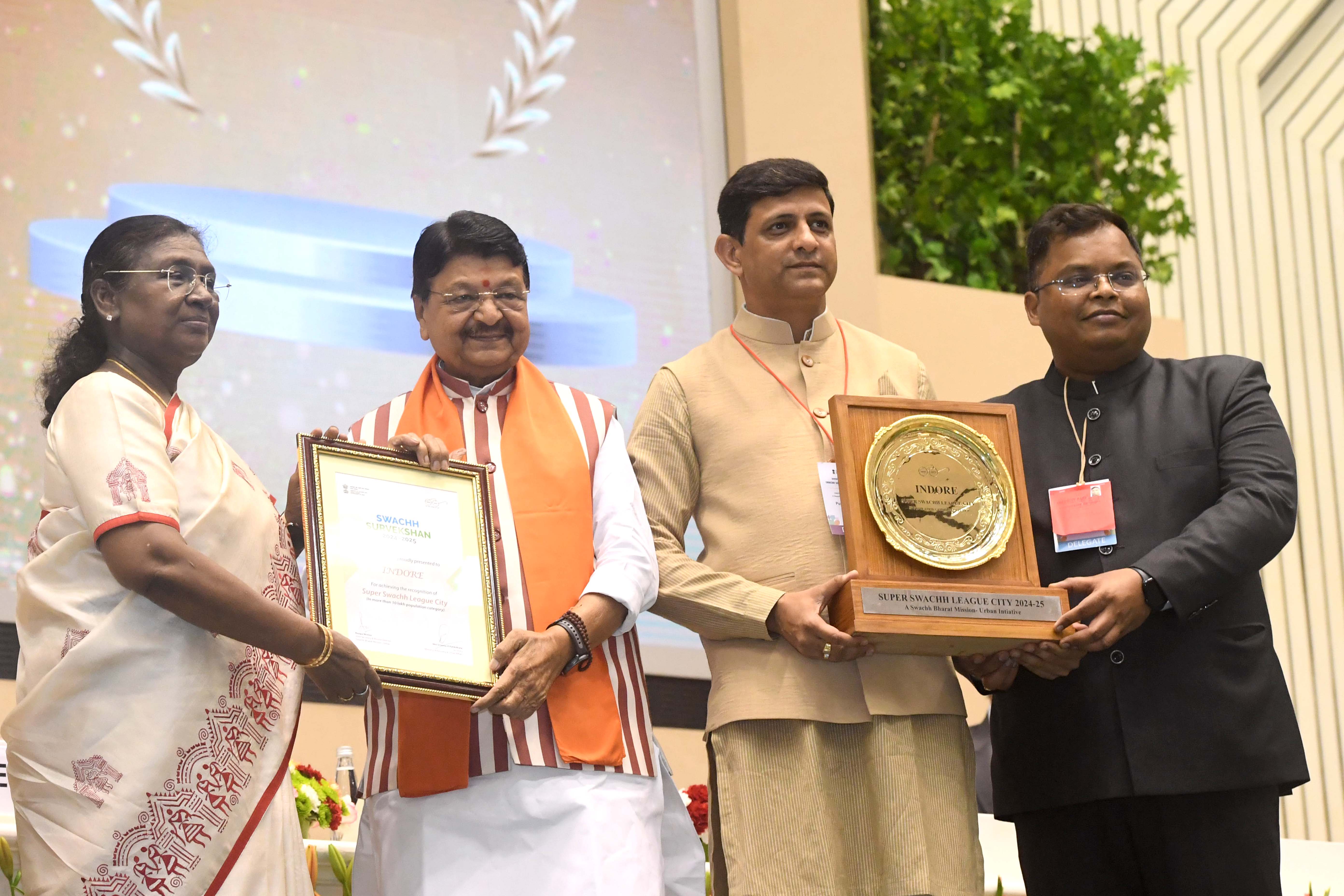
Click here to see the President's speech
***
MJPS/SR/SKS
(रिलीज़ आईडी: 2145459)
आगंतुक पटल : 461
इस विज्ञप्ति को इन भाषाओं में पढ़ें:
Urdu
,
हिन्दी
,
Marathi
,
Manipuri
,
Bengali
,
Punjabi
,
Gujarati
,
Tamil
,
Telugu
,
Kannada
,
Malayalam